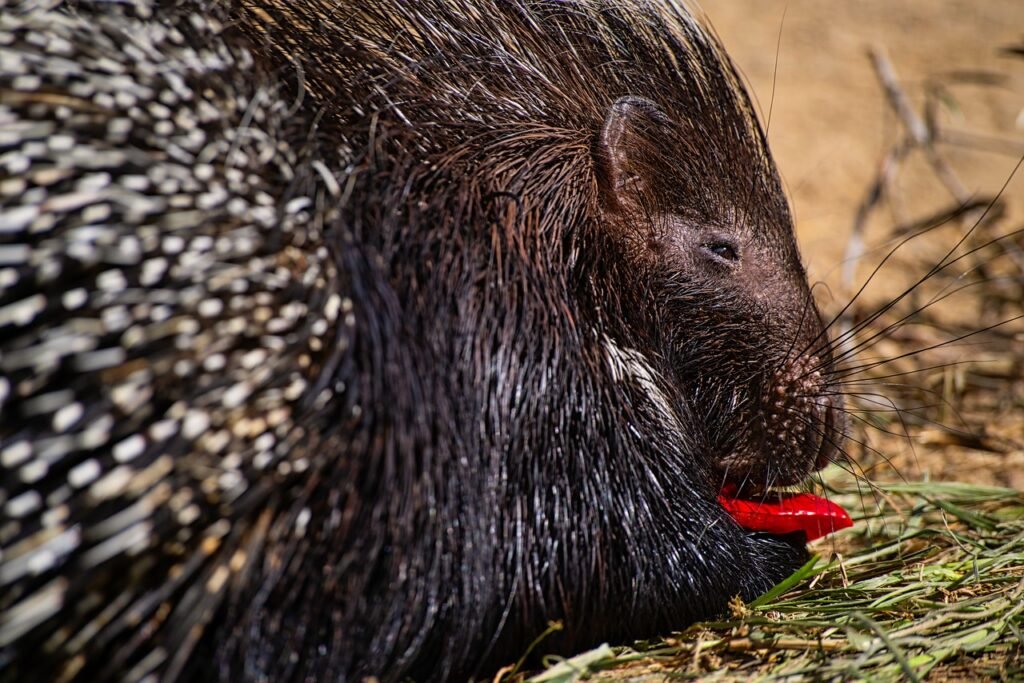Recall training is a valuable skill that ensures a strong bond between you and your porcupine while promoting safety and effective communication. Teaching your porcupine to come when called is not only practical but also enriching for their mental stimulation. In this guide, we’ll explore effective strategies for recall training to make this command an integral part of your quilled companion’s repertoire.
Preparing for Recall Training:
1. Choose the Right Environment:
- Begin recall training in a quiet and familiar environment where your porcupine feels comfortable and secure. Minimize distractions to help them focus on the training.
2. Positive Reinforcement Tools:
- Gather high-value treats or favorite snacks that will serve as positive reinforcement during training. Ensure they are small and easy for your porcupine to consume.
3. Secure Enclosure:
- Use a secure and enclosed area for initial recall training sessions. This prevents your porcupine from wandering too far during the learning process.
4. Timing is Key:
- Choose the right time for training when your porcupine is alert and receptive. Avoid initiating recall training when they are tired or not in the mood for activities.
Step-by-Step Recall Training:
1. Name Recognition:
- Begin by establishing name recognition. Use your porcupine’s name consistently in a positive and gentle tone during interactions.
2. Positive Associations:
- Create positive associations with your porcupine’s name. Reward them with treats or praise whenever they respond to their name voluntarily.
3. Short Distances:
- Start recall training with short distances. Call your porcupine’s name and, as they approach, reward them with treats and enthusiastic praise.
4. Use a Distinct Command:
- Introduce a distinct recall command, such as “come” or any word of your choice. Be consistent in using this command during training sessions.
5. Encourage Movement:
- Use gentle encouragement to motivate your porcupine to move towards you. You can use treats, toys, or a cheerful tone to entice them.
6. Reward and Praise:
- When your porcupine responds to the recall command and approaches you, immediately reward them with treats and offer verbal praise. Make the experience positive and enjoyable.
7. Gradual Distance Increase:
- Gradually increase the distance between you and your porcupine during training sessions. As they become more comfortable, extend the distance while maintaining positive reinforcement.
8. Consistent Reinforcement:
- Consistency is crucial. Reinforce the recall command regularly, even when your porcupine is not on a leash, to strengthen the association.
9. Vary Training Locations:
- Practice recall training in different locations to generalize the behavior. This helps your porcupine understand that the command applies in various situations.
10. Gradual Leash Freedom:
- When your porcupine consistently responds to recall commands, gradually allow them more freedom on a leash. Continue to reinforce positive behavior.Tips for Successful Recall Training:
1. Positive Reinforcement:
- Use positive reinforcement consistently. Make the experience of coming when called rewarding and enjoyable for your porcupine.
2. Short and Fun Sessions:
- Keep training sessions short and fun. Porcupines have shorter attention spans, so engaging in brief and enjoyable sessions is more effective.
3. Be Patient and Calm:
- Patience and a calm demeanor are essential. Avoid frustration or impatience, as this can create negative associations with the recall command.
4. Avoid Punishment:
- Never use punishment in recall training. This can create fear and anxiety, making your porcupine less likely to respond positively to the command.
5. Consistent Practice:
- Consistent practice is key to successful recall training. Regularly reinforce the recall command to maintain the learned behavior.
6. Practice in Different Scenarios:
- Practice recall training in various scenarios and environments. This ensures that your porcupine associates the command with coming to you regardless of the situation.
7. Celebrate Successes:
- Celebrate each successful recall with enthusiasm and positive reinforcement. This strengthens the bond between you and your porcupine.
8. Consider Professional Guidance:
- If you encounter challenges in recall training, consider seeking professional guidance from a veterinarian or animal behaviorist.
Final Thoughts:
Recall training is a valuable skill that enhances the safety of your porcupine and strengthens the connection between you and your quilled companion. With patience, positive reinforcement, and consistent practice, you can successfully teach your porcupine to come when called, providing both mental stimulation and a sense of security for your furry friend. Enjoy the process of building a trusting and communicative relationship through recall training.



